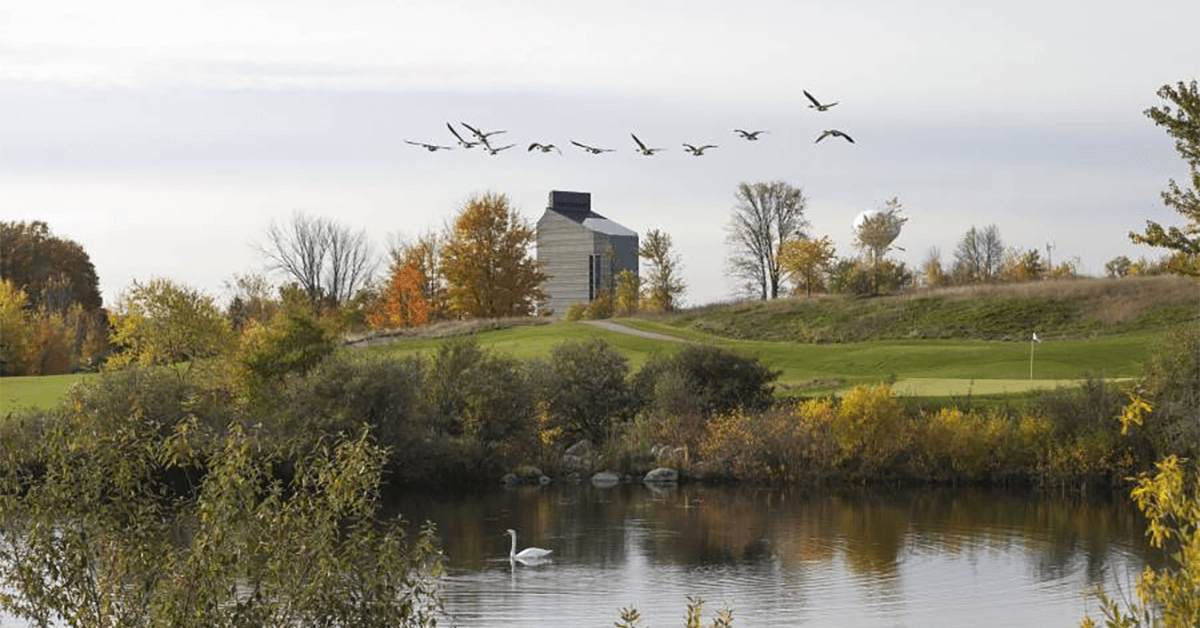Proposal to Allow Cannabis Dispensaries in Howell Sparks Debate

While other Michigan cities have had cannabis dispensaries for years, Howell remains one of the few without any within its city limits. However, this could change depending on the outcome of a proposal set for the November ballot. The proposal has sparked mixed reactions from the community.
Some residents, like Gary Campbell, support the idea of having a dispensary in Howell. "I think it's just fine. There's a lot of people who can benefit from it. I don't think it's as addictive as they once said, and it's a lot better for people who have a great need," Campbell said.
On the other hand, some residents oppose the measure. Kathy Langhorst expressed her view, stating, "I think we can get marijuana in many places, and we don't need a dispensary here in Howell."
The debate surrounding the proposal has been ongoing for some time. Over the past year, a local group called the Open Stores in Howell Committee has pushed to have the issue put to a vote. Their efforts paid off in September when they won a court case allowing the proposal to appear on the ballot.
The proposal, if passed, would amend the city’s charter to establish an application and licensing process for up to two "adult-use" cannabis retail stores. Despite this, not all local officials are on board. The Livingston County Sheriff’s Office has openly opposed the measure, with Sheriff Michael Murphy making his stance clear in a Facebook video posted on October 1st. In the video, Murphy urged residents to vote against the proposal, saying, "How about this? Why don’t you stock up a little when you go elsewhere, and you have that two and a half ounces in your house, so we don’t have to have a dispensary in the city of Howell? We do not need pot shops in Livingston County."
These sentiments are shared by Howell Mayor Bob Ellis, who has expressed concerns about the potential impact on the city's image. "It would kind of change the character of our city if the first thing you see when you come into Howell is marijuana shops," Ellis said. He also mentioned worries about the potential health effects on Howell’s residents.
Despite the opposition, there are still residents like Carol Nickles who believe that cannabis stores could be a positive addition to the community. "I think marijuana stores are a great idea," Nickles said.
The proposal will appear on the November ballot as a proposed city charter amendment, leaving the decision in the hands of Howell voters.
Cannabis Businesses Push Back Against Hemp-Derived THC Products

Cannabis businesses across Michigan are beginning to unite in an organized effort to address the growing concerns over CBD conversion oils in legal cannabis products. These oils, which are often used to produce synthetic THC, have sparked controversy within the industry. Now, a coalition of cannabis operators is calling for significant reforms and stronger regulatory oversight to tackle what they see as a serious threat to both consumer safety and market integrity.
Leading the charge is Lansing-based company Trap House Company, whose CEO, David Bye, has been vocal in urging lawmakers to take more decisive action. In a forthcoming op-ed for the Lansing State Journal, Bye calls for a ban on hemp-derived THC products and the revocation of licenses for operators who are found to be non-compliant. Such measures would represent a sharp departure from the current penalties, which typically involve fines rather than permanent license suspensions.
“So many of us have worked so hard to make cannabis safe for the people and to bring the market out of the shadows,” Bye stated in an interview with City Pulse. “We must act now to remove the criminal elements from the industry by revoking their licenses permanently and refraining from purchasing synthetic or converted oils. Failing to do so would undermine all the progress we have made.”
Rising Tensions Over Conversion Oils
The effort to curb the use of CBD conversion oils has become one of the industry's most contentious battles yet. This debate is now taking center stage in every major cannabis market across the country, pitting traditional cannabis operators against the well-funded lobbying efforts of the hemp and vape industries. With each side fighting for its version of the market's future, the stakes have never been higher.
The primary concern driving this movement is consumer safety. Independent third-party testing has revealed that numerous vape cartridges and edible products available in Michigan dispensaries contain unregulated conversion oils and other harmful contaminants, including pesticides banned in the state. Such findings have raised red flags, highlighting a potential risk to public health that many feel needs to be addressed through stricter regulations and enforcement.
Market Impact and Business Challenges
Beyond safety, fairness within the industry has become a critical issue. In his op-ed, Bye argues that the widespread use of CBD conversion oil is creating an uneven playing field for local cannabis businesses that operate within legal boundaries. “Those of us who follow the rules are being undercut by a flood of cheap, unregulated THC products,” Bye states. Because CBD conversion oils are far cheaper to produce than conventional cannabis extracts, they have driven down product prices across the board, making it increasingly difficult for compliant operators to stay afloat.
Michigan's cannabis market is already grappling with oversupply due to its relatively open licensing system, which allows a high volume of production. The addition of low-cost, hemp-derived THC products further exacerbates the issue, placing even more pressure on small businesses trying to compete. As a result, many operators feel that the market is being distorted, making it less viable to produce traditional, distillate-based products.
Competing Visions for the Industry's Future
The hemp industry and advocates of hemp-derived THC products have a different vision for cannabis's future. They imagine a market more akin to alcohol, where THC products could be sold in a wide variety of locations, from grocery stores to gas stations. This would significantly broaden access and create new opportunities for hemp-derived products, which are easier and cheaper to produce.
But traditional cannabis businesses, like Trap House Co., see this as a threat to the regulated market they have worked hard to build. They believe the industry should maintain its current model, where all THC products are sold through licensed dispensaries, with rigorous safety standards, taxes, and compliance measures in place. This approach not only prioritizes consumer safety but also ensures that the industry remains transparent and professionally managed.
Seeking a Level Playing Field
The discrepancy between these two business models has left many cannabis operators frustrated. Those adhering to Michigan's strict cannabis regulations argue that they face higher fees, stricter oversight, and fewer avenues to market their products, while hemp-derived THC manufacturers enjoy minimal regulations and broader retail access. It's a system that seems to reward cutting corners and poses a risk to the progress made by the legal cannabis industry.
To address this imbalance, advocates like Bye are calling for the state to either regulate or ban the use of CBD conversion oils outright. The issue is likely to dominate the cannabis policy debate in Michigan over the coming year, as it has in other states such as California, which recently banned the sale of hemp-derived THC products altogether.
As the conversation continues, the question remains whether Michigan will follow suit or carve its own path forward in regulating this emerging sector of the cannabis industry.
Lodi Township Residents to Vote on Limited Cannabis Cultivation

Lodi Township residents will soon decide on whether to allow limited cannabis cultivation and processing facilities within their community. On November 5th, voters will consider Proposal B, which, if approved, would permit up to five adult-use grow operations and two processing facilities within the township located north of Saline. Retail cannabis stores, however, would remain prohibited.
The proposal represents a potential shift for Lodi Township, which currently prohibits all cannabis establishments. It emerged after a group of residents collected and submitted the required number of petition signatures, which were officially certified by the township in August.
The petition's language was crafted by Ann Arbor attorney Ben Joffe, who collaborated with local farmer Chris Trinkle. Trinkle manages "Made By A Farmer," an agricultural business that grows a variety of vegetables and hemp. According to Joffe, the goal of the proposal is to support Lodi Township’s agricultural community by providing farmers an opportunity to diversify their crops.
“Farming is a difficult industry, especially for small, family-owned farms competing against larger commercial operations,” Joffe stated. “This proposal could provide local farmers a new crop option, allowing those who have farmed for generations to expand their offerings.”
Trinkle echoed Joffe’s sentiments, noting that it could encourage a younger generation to consider farming as a viable career path. “Land and equipment are expensive, and many farms are just scraping by,” Trinkle said. “This would offer farmers another avenue for sustaining their operations.”
Lodi Township officials, including Township Supervisor Janann Godek, have been gathering community input on the proposal. According to Godek, the township conducted a survey to gauge resident opinions on the matter, but responses are still being compiled.
If approved, the next steps are uncertain, as the township would need to review state regulations and establish a framework for implementation. Voters seeking more information are invited to attend an upcoming informational event at 8275 Scio Church Road. Sessions will be held from 11 a.m. to 7 p.m. on Friday, Oct. 4th, and from 11 a.m. to 3 p.m. on Saturday, Oct. 5th.
Acme Township Rejects Cannabis Facility's Bid for Non-Medical License

Acme Township's cannabis regulations are unlikely to change, despite a recent appeal from the township's sole licensed grow facility. Trustees reaffirmed their stance against expanding cannabis operations during a meeting on Tuesday, following a request from Omeena Farms to secure a non-medical license in addition to its existing medical cannabis cultivation permit.
Brandon Cohen, Managing Member of Omeena Farms, addressed the board and explained that acquiring a non-medical license would provide more flexibility and financial stability for the Bates Road facility. Currently, the farm cultivates 3,000 plants under its two medical licenses and sells its output to another grower downstate that holds both medical and non-medical licenses. Gaining a non-medical license would enable Omeena Farms to directly sell into Michigan's recreational cannabis market.
Cohen added that securing a non-medical license is vital for the business's viability until federal cannabis reform, which could result in a reclassification of cannabis from its current Schedule I status to Schedule III. Such a move would likely impose increased regulation on medical cannabis, making it more valuable in the long term.
"We are trying to float and get by until medical marijuana comes back into what we believe it will be, which is regulated by the FDA," Cohen said.
However, Supervisor Doug White and other trustees reiterated their opposition to allowing recreational cannabis businesses in Acme Township. Multiple residents also voiced their concerns during public comments, noting existing complaints related to odor and outdoor lighting issues at the Omeena Farms facility.
Public and Industry Reactions
The township's rejection drew criticism from some industry experts, including Don Bailey, a retired Michigan State Police trooper and former member of the state's now-defunct medical marijuana licensing board. Bailey argued that the downturn in Michigan's medical cannabis market was predictable, citing the rapid decline in patient numbers from 330,000 to 90,000 since the state legalized recreational use in 2018.
"Nobody should be able to say that they didn't see this coming," Bailey said.
Cohen countered that while he anticipated a shrinking market, the decline in medical cannabis sales in Michigan has been more severe than expected. He had projected the state's medical market would stabilize at around 3% of the size of the recreational market, a figure that aligns with trends seen in other states, but Michigan's contraction has outpaced this estimate.
Ongoing Concerns Over Facility Compliance
Township Planner Lindsey Wolf noted that her department received 14 complaints related to odors at Omeena Farms since February. Cohen acknowledged that more could be done to address the issues and reported that the facility recently invested $12,000 in improved filtration systems. He argued that expanding into non-medical cannabis would provide the necessary funds to further enhance operations and minimize community concerns.
Despite these assurances, trustees remained firm on their position. The board's decision leaves Omeena Farms constrained under its current licensing structure, limiting its ability to access the state's larger recreational market.
Mason Residents to Vote on Recreational Cannabis Dispensaries in November

When Michigan voters approved the legalization of recreational cannabis in 2018, Mason was one of roughly 1,300 municipalities that chose to prohibit sales within its borders. Now, more than five years later, the small city might finally reverse that decision if residents vote to allow two dispensaries to be licensed this November.
The Michigan cannabis industry has expanded rapidly since legalization, reaching $3 billion in total sales last year. By opting out of permitting local dispensaries, Mason missed out on a portion of the revenue distributed through the state's cannabis excise tax. Had the city opted in last year, it would have received over $118,000 in tax-sharing funds, which continue to grow annually.
How the Ballot Measure Came About
The City Council decided to put the issue to a public vote this past July, spurred in part by external pressure. Mayor Russell Whipple noted that attorneys have contacted the city twice in the last two years to encourage adding a cannabis-related measure to the ballot. The most recent push came in December 2022, when Ypsilanti-based lawyer Anderson Grandstaff informed the Council of his plans to begin a petition process to force the issue if the city did not act.
In response, the Council chose to proactively draft its own ordinance and ballot language. "We concluded that it wasn't a bad idea to let the people decide," said Whipple. "If the residents agree, we'll move forward with drafting an ordinance, and the Council will consider adopting it."
The Council introduced the ballot language in March, and by July 15th, members voted unanimously to place the measure on the November ballot. Whipple explained that working with Grandstaff on crafting the language allowed Mason to maintain some control over the process. "If we were going to do this, we thought it would be better if we wrote it ourselves to ensure there's consistency," he said. "We wanted to have some semblance of control over what the law would say."
Potential Impacts and Implementation
If the measure is approved, the next step would involve updating local zoning ordinances to define where dispensaries could be located. "We'll need to thoroughly review our zoning to see which areas would be suitable for cannabis businesses," Whipple explained. "But we won't invest too much effort until we know that residents want this."
There's reason to believe the proposal may pass. In 2018, 57% of Mason voters supported legalizing recreational cannabis—slightly higher than the 56% state average. Given this, local advocates like Miles Mendoza are optimistic. Mendoza, a Mason resident and cannabis industry employee, attended the Council's July 15th meeting to voice his support for the proposal and to urge the city to prioritize local hiring if the measure passes.
"Cannabis businesses can have a positive impact if they're run by people who invest in the community," Mendoza said, emphasizing that many facilities outside Mason employ a high percentage of local residents. He also suggested the city consider allowing cannabis cultivation operations, noting that the proposed ordinance currently only addresses retail dispensaries.
Opposition Voices Concern Over Community Impact
Not all Mason residents are on board. Trish Walley, a resident since 2020, plans to vote against the proposal. "I moved here partly because there are no dispensaries in Mason," said Walley, who is in recovery. "You already smell it everywhere. We don't need it on every block like in Lansing."
Walley argued that the city should focus on attracting businesses that would contribute to the community in other ways, such as a new grocery store or other services that align with the town's "family-oriented" values. "If people want cannabis, they can go to places where it's available," she said.
Next Steps if Approved
Should the measure pass in November, the city could begin the process of revising zoning and accepting dispensary license applications by early next year. "There's still a lot to work out," Whipple cautioned. "We want to approach this carefully, taking into account feedback from both supporters and those who have concerns."
The outcome will likely be influenced by how well the proposal is communicated to residents leading up to the vote. If passed, Mason would join a growing list of municipalities choosing to benefit from the expanding cannabis market and the potential revenue that comes with it.
Court Keeps Howell Cannabis Dispensary Proposal on November Ballot

A Michigan Court of Appeals decision has ensured that a local proposal to permit cannabis dispensaries in Howell will remain on the ballot. This ruling comes after the city's clerk attempted to withdraw her consent for the question to appear before voters.
The ballot initiative seeks to amend Howell's city charter to introduce "an application process, selection criteria, licenses, fees, and regulations for two adult-use retail cannabis establishments." However, legal complications emerged after concerns were raised about the potential conflict between the proposed charter amendment and the Michigan Regulation and Taxation of Marihuana Act (MRTMA), which governs recreational cannabis use statewide. Specifically, questions arose about whether the local measure would supersede state law, leading to the city clerk's reversal.
The Howell city clerk initially approved the proposal to move forward, allowing county election officials to include it on the ballot. However, following a separate Michigan Court of Appeals decision regarding a similar ballot measure in Farmington, where it was ruled that the measure exceeded the narrow scope of what could be enacted through a ballot initiative under state law, the Howell clerk reconsidered. She then sought to retract her approval.
This led the group advocating for the measure, the Open Stores in Howell Committee, to file a lawsuit against the clerk's decision. The group had already won at the trial court level, and the recent appellate court decision upheld that victory.
In its ruling, a three-judge panel emphasized the importance of adhering to election deadlines and rejected the idea that the Howell city clerk had the authority to change her position after certification. The court stated, "The crux of defendants' argument is that the City Clerk has a continuing duty to approve or reject a petition even beyond the deadline for certification to the County Clerk. Again, defendants have provided no authority for that position." The court further highlighted that allowing clerks to backtrack could disrupt crucial election processes, including ballot printing and mailing deadlines.
While this decision clears the way for the ballot question, the court did leave open the possibility for future legal challenges if the proposal is approved by voters.
Livingston County Clerk Elizabeth Hundley, also named as a defendant in the case, remarked on the ongoing difficulties local clerks face in managing cannabis-related proposals. "There needs to be some clarification so that everyone — including local clerks and their legal counsel — knows what can and cannot be included in the language of these petitions," Hundley said.
Despite these legal hurdles, Hundley confirmed that her office's priority is to ensure that ballots are ready for the upcoming November 5th election. Absentee ballots are already being mailed to voters who requested them.


 Helpful Links
Helpful Links